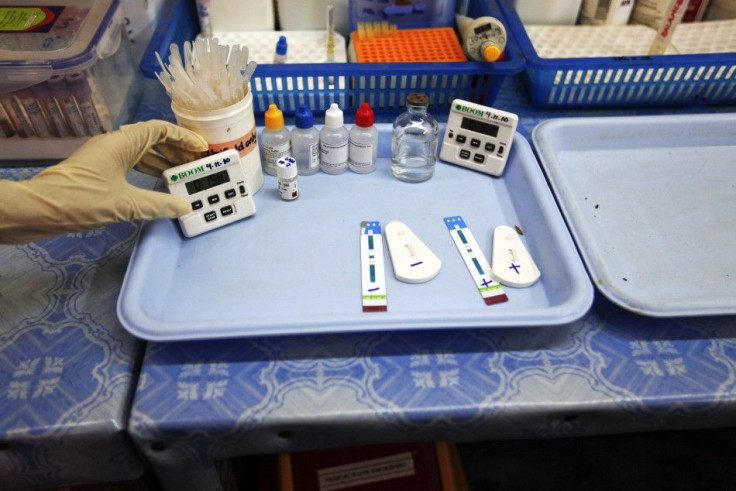HIV 'Superinfection' Boosts Immune Response

Women infected with two separate human immunodeficiency virus strains have a stronger immune response than women infected with a single HIV strain, a finding that could assist in producing the elusive anti-HIV vaccine, according to a new study published in the journal PLoS Pathogens on Thursday.
The dual infections, aka superinfections, conferred increased immune response on Kenyan women.
Compared with women infected with one strain, 12 superinfected Kenyan women had about 70 percent more antibodies and their ability to fight HIV was almost 50 percent stronger, according to the research.
These results suggest that potentially having two different antigens is a better way to stimulate a good immune response than just one, Julie Overbaugh, lead researcher and associate professor of microbiology at the University of Washington, said in a statement. So now the question is: What should be in a good vaccine? These women may be giving us clues.
HIV superinfections are rare: Health officials reported 50 cases worldwide as of last year, according to the Terrence Higgins Trust, a U.K. charity that aims to reduce the spread of HIV and AIDS. Researchers said the opportunity to study 12 superinfected women was a unique opportunity.
We found that women who had been infected twice not only had more potent antibody responses, but some of these women had 'elite' antibody activity, meaning that they had a broad and potent ability to neutralize a wide variety of strains of HIV over a sustained period of time, Overbaugh said in a statement.
Researchers aren't sure why superinfected women have a better immune response, but said one possibility is that while there was an OK response to the first virus, the second kicked the immune system into gear.
The other possibility is that there's a different response to each virus, and they just add up to make a nice combination response, Overbaugh told Fox News.
HIV causes a failure of the immune system. Some people develop flulike symptoms within a few weeks of being infected, but most infected people show no symptoms, according to the Centers for Disease Control and Prevention. More than 1 million Americans live with HIV, and about 25 percent of seropositive people are unaware of their HIV status, according to the CDC.
No cure for HIV is known, but treatments include drug cocktails that inhibit formation of new HIV particles. If treatment begins early, life expectancy is 32 years, according to a 2006 study published in Med Care. Life expectancy shinks as treatment is delayed.
Risk factors for HIV include having sex with multiple partners, having sex without a condom, and having sex with men who have sex with men, according to the National Institute of Allergy and Infection Diseases. Although no effective vaccine exists, a few candidates have entered Phase III clinical trials, the final hurdle before a drug can be approved for use in the general population.
Researchers announced that the vaccine AidsVax failed its Phase III trial in the United States in 2003. However, AidsVax was combined with another failed vaccine and retested on 16,400 people in Thailand, beginning the same year.
The results were encouraging, researchers said in a study published in the New England Journal of Medicine in 2009. Participants were tested every six months for three years, and, at the study's conclusion, the vaccine group had an infection rate 30 percent lower than the control group.
Another vaccine, SAV001, began clinical trials in January. SAV001 is different from other vaccines because it contains killed HIV, whereas all previously tested vaccines contained artificial forms of the virus. If all goes well with the clinical trials, the drug could be on the market in five years, Dr. Chil-Yong Kang, lead researcher and virologist at the University of Western Ontario, told DailyTech.
© Copyright IBTimes 2024. All rights reserved.





















